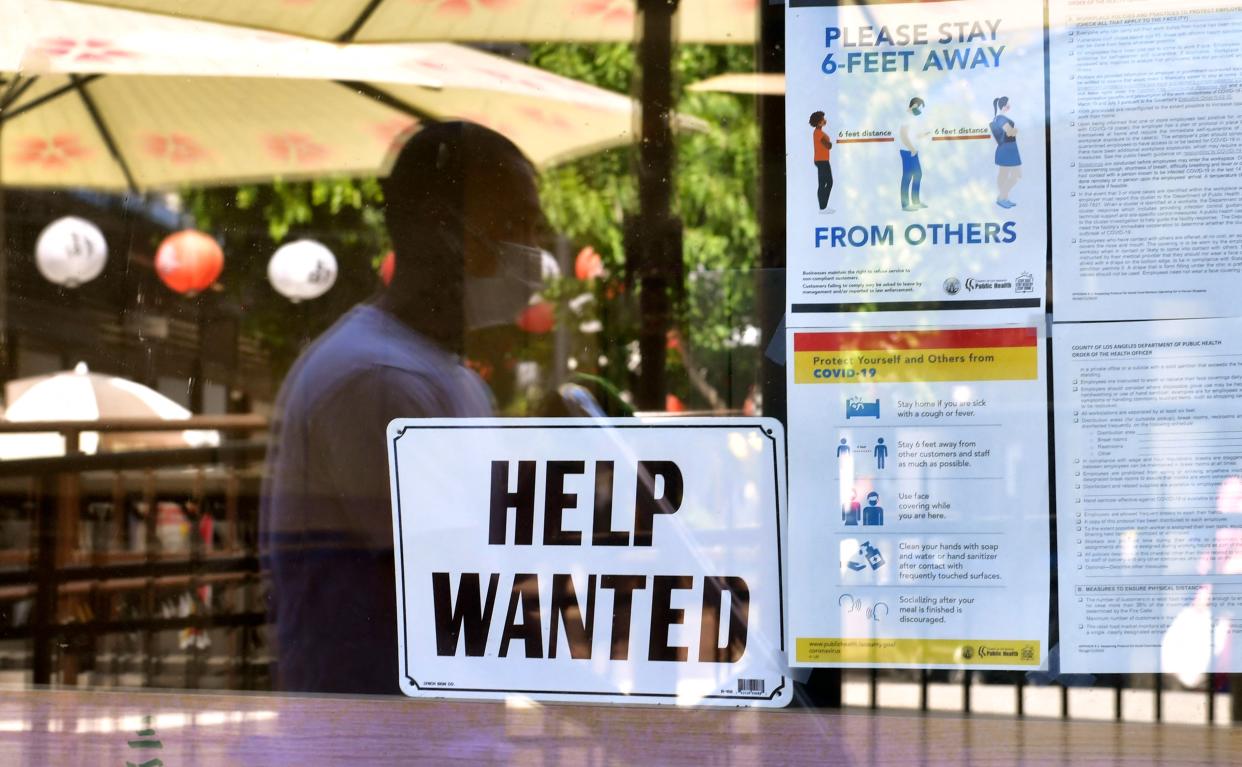European stocks mixed as US economy adds 850,000 jobs in June

European stock markets were mixed on Friday as the US economy added 850,000 jobs in June, beating estimates. Economists had forecasted a 700,000 increase.
May’s non-farm payroll has also been revised up, showing 583,000 new hires from 559,000. However, the unemployment rate rose to 5.9% from 5.8% as more people are looking for work.
The US Bureau of Labour Statistics said "notable job gains” occurred in leisure and hospitality, public and private education, professional and business services, retail trade, and other services last month.
Average earnings rose again in June too, up 0.3% or 10 cents per hour. Earnings are 3.6% higher than a year ago.
In London, the FTSE 100 (^FTSE) was closed flat despite some sterling weakness, while the CAC (^FCHI) was almost 0.2 lower in France, and the DAX (^GDAXI) was 0.3% higher.
Travel, leisure, basic resources and technology stock lead the way higher in Europe, whilst banks and retail are down.
“Today’s jobs numbers coming out of the US may look good one paper, but dig a little deeper and cause for concern remains," Hinesh Patel, portfolio manager at Quilter Investors said.
"After two months the headline number is finally trending in the right direction, but the unemployment rate has climbed higher to 5.9%. Hours worked is also down and this is bad news for the recovery as it means incomes are being hit at the exact time the government wants people out spending.
“The data is currently just too noisy to interpret and as such the Federal Reserve will continue resisting calls to speed up its policy tightening and be comfortable sitting on their hands until a clearer picture emerges. Furthermore, given the US is likely to lead the way for other developed economies, we should expect the global money taps to keep flowing for a while longer yet.”
Watch: Why a 'too hot' jobs number could spell trouble for markets
Across the pond, the S&P 500 (^GSPC) rose 0.5% to fresh highs by the time of the European close, and the tech-heavy Nasdaq (^IXIC) climbed 0.5%. The Dow Jones (^DJI) edged 0.3% higher.
On Thursday data showed that US unemployment claims reached new pandemic lows, with the number of Americans applying for unemployment support falling by more than projected last week.
Initial claims in regular state programmes decreased by 51,000 to 364,000 in the week ending 26 June. The median estimate by economists expected 388,000 initial applications.
Read more: Bitcoin set for weekly fall as price dips to end the week
Shares were mostly higher in Asia on Friday, though markets in Shanghai and Hong Kong declined a day after the Chinese Communist Party marked its centenary with tough talk by Chinese President Xi Jinping.
Japan's benchmark Nikkei (^N225) climbed 0.3% while the Hang Seng (^HSI) fell 1.9% and the Shanghai Composite (000001.SS) slumped almost 2%.
Elsewhere, oil prices are more than $75 (£54.5) a barrel after the Organisation of the Petroleum Exporting Countries (OPEC), the group of crude-producing nations, failed to agree a deal on output overnight.
OPEC was forced to postpone a decision on output after the United Arab Emirates blocked a deal to add back 2 million barrels per day (bpd) in the second half of the year.
The standoff could lead to OPEC+ not increasing supply, which would mean that the cartel falls back on a previous agreement to keep production steady until April 2022.
“Another OPEC+ implosion like last April is unlikely,” said Vandana Hari, founder of oil consultancy Vanda Insights.
“They have worked too hard over the past year to ditch the pact in a huff at this stage. I expect the tentative deal between Saudi Arabia and Russia to go through, but some sort of concession may be made to the UAE.”
Watch: What are SPACs?


